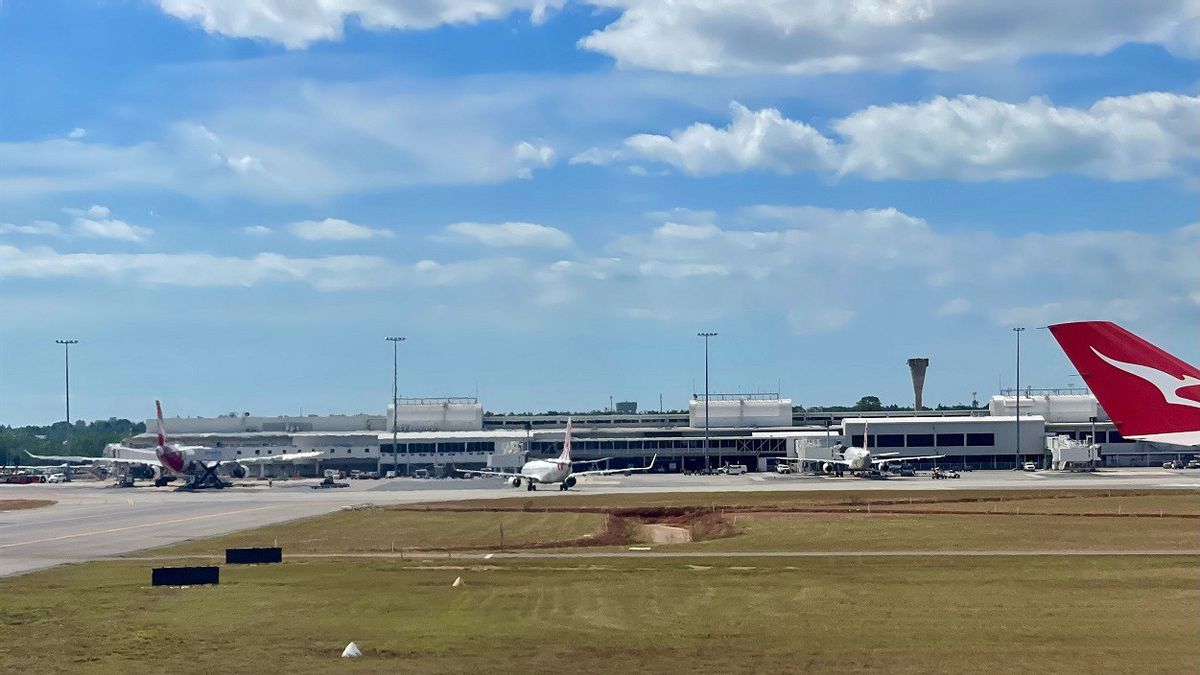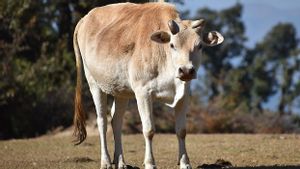JAKARTA - This passenger who flew from Bali to Australia may not have thought that he would have to pay a lot for the McDonald's breakfast he brought.
The unnamed traveler was fined A$2,664 after two eggs and an unreported McMuffins beef sausage and ham croissant were found in luggage upon arrival at Darwin Airport in the north of the country last week.
The incident comes days after Australian authorities imposed strict new biosecurity rules, after an outbreak of Mouth and Fingernail disease (FMD) in Indonesia spread to Bali, a popular destination for Australian tourists.
Australia's Department of Agriculture, Fisheries, and Forestry said "a range of undeclared risky products", including fast food, were detected in passengers' backpacks by a biosecurity detection dog named Zinta.
"This will be the most expensive Maccas meal this passenger has ever had", Murray Watt, minister of agriculture, fisheries, and forestry, said in a statement.
"This fine is double the cost of a plane ticket to Bali but I have no sympathy for those who choose not to comply with Australia's stringent biosafety measures, and the latest detections suggest you will be arrested."
The statement went on to confirm that the passenger had been issued with "a notice of infringement for failing to state a potential high-risk biosecurity item, providing false and misleading documents." The confiscated products will be tested for oral and nail diseases before being destroyed.

"Australia is FMD-free and we want to keep it that way", Watt added.
Last month, Australia's federal executive government announced a $9.8 million biosecurity package, with new measures introduced across the country's borders, including sanitary footwear at all international airports and biosecurity dogs stationed at Darwin and Cairns Airports, after the highly contagious disease began to spread.
Experts estimate that the outbreak in Australia could deal with an economic hit of up to 80 billion US dollars.
"Tourists arriving from Indonesia will be under stricter biosecurity surveillance, due to the presence of Foot and Mouth Disease (FMD)", reads a statement released by the Ministry of Agriculture, Fisheries and Forestry on July 19.
"Failure to declare a biosecurity risk would constitute a violation of Australian biosecurity laws, and anyone found in violation may be issued a notice of infringement of up to $2,664."
"Travelers who enter Australia on a temporary visa may have their visa canceled and, if so, be denied entry to Australia."
It is known that although FMD is relatively harmless to humans, the disease causes painful blisters and sores on the mouths and feet of split-hoofed animals such as cattle, sheep, pigs, goats, and camels, stopping them from eating and causing severe lameness and death in some cases.
SEE ALSO:
The disease can be carried by live animals, in meat and dairy products, as well as on the clothing, footwear, or even luggage of people who have had contact with infected animals.
"The impact on farmers if foot and mouth disease sets in are too heartbreaking to think about", National Farmers Federation president Fiona Samson told CNN last month.
"But it's not just about farmers. Removing $80 billion from Australia's GDP would be an economic disaster for everyone."
The English, Chinese, Japanese, Arabic, and French versions are automatically generated by the AI. So there may still be inaccuracies in translating, please always see Indonesian as our main language. (system supported by DigitalSiber.id)















